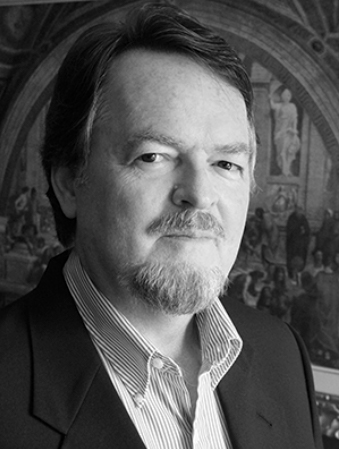Climate Change: The hope for a better days ahead
by | Posted April 27th at 12:18am
When Adam sinned, everything on earth was subjected to God’s curse; that is, to futility, change, and decay. Creation also is cursed because it is unable to attain the purposes for which it was made – to bless mankind made in His image.1 For example: when the people of Israel began worshipping idols God put the whole land under an agricultural curse, often challenged by radical weather changes and drought. Moses had warned of punishment for rebellion.
You will sow much seed in the field but harvest little, because the locusts will consume it. You will plant and cultivate vineyards, but will neither drink the wine nor gather the grapes, because worms will eat them. You will have olive trees throughout your territory but will never anoint yourself with oil, because the olives will drop off. (Deuteronomy 28:38-40)
A word on climate change The scriptures teach that we are also stewards of the earth and all nature. In fact, God told Adam to take dominion over the entire earth. (Genesis 1:26-28) Soon the perfect order in the world was marred by sin; therefore, fallen people had to live in a fallen world and have demonstrated over many years that they have not been caring stewards – quite the contrary. Our perfect world continues to be harmed by a world population concomitantly marred by continuing sin as it continues to deny the Creator’s guidance. Yet all nature’s creation anticipates the day when it will join God’s children in glorious freedom from death and decay. Revelation 22 describes the future removal of the curse from the earth when the earth will be renewed. (Romans 8:20–21)
Adam and Eve were the first polluters of the environment when they sinned. Their act of rebellion affected the entire world. It has taken many centuries to realize the interrelatedness of this global village, but the Bible begins with that assumption. Having the same Creator links us with the rest of the created order. But as much as we do personally and corporately to clean up and care for the environment, we must realize that creation will require the same kind of transformation that we require in our hearts in order to be set straight again.
In fact, in Romans 8:22–23, Paul pictures the fallen creation as groaning as in the pains of childbirth. Consider earthquakes, floods, fire, drought, famine, plagues—these are surely not what creation was meant to be, but sin and evil now rule. Just as the pains of childbirth end at the birth of the child, so the groaning and pain of the creation will end at the birth of the new earth. Creation groans and longs for its release and transformation into the new heaven and new earth. We Christians also groan to be released from pain and suffering, longing for our own release from the cycle of sin, effects of aging on health and eventual physical death (Romans 8:23).
We long for redemption when God will give us our full rights as his children, including the new bodies he has promised us. In this process we are not alone, for the Holy Spirit groans with us, expressing our unutterable longing to God and giving us a foretaste of future glory. But until the time of our release and redemption, we must groan, wait, and hope.
When we put our faith in Christ as Savior, we are saved and we can eagerly look forward to the freedom we will have at Christ’s return. (Romans 8:24–25) We already have the presence of the Holy Spirit, who is unseen, but we must eagerly wait for our new bodies, which are also unseen. Our full redemption has not yet happened; it will happen when Christ returns. That is why it is still a hope for believers.
Our salvation is both present and future. It is present because the moment we believe in Jesus Christ as Savior we are saved (Romans 3:21–26; 5:1–11; 6:1–11, 22–23); our new life (eternal life) begins. But at the same time, we have not fully received all the benefits and blessings of salvation that will be ours when Christ’s new Kingdom is completely established. While we can be confident of our salvation, we still look forward with hope and trust toward that complete change of body and personality that lies beyond this life.
1Barton, B., Comfort, P., Osborne, G., Taylor, L. K., & Veerman, D. (2001). Life Application New Testament Commentary

Article posted by Glen R. Jackman, founder of GraceProclaimed.org
Glen has optimized his eldership role to teach the full scope of the New Covenant of Jesus Christ without
boundaries.
You can read his testimony.